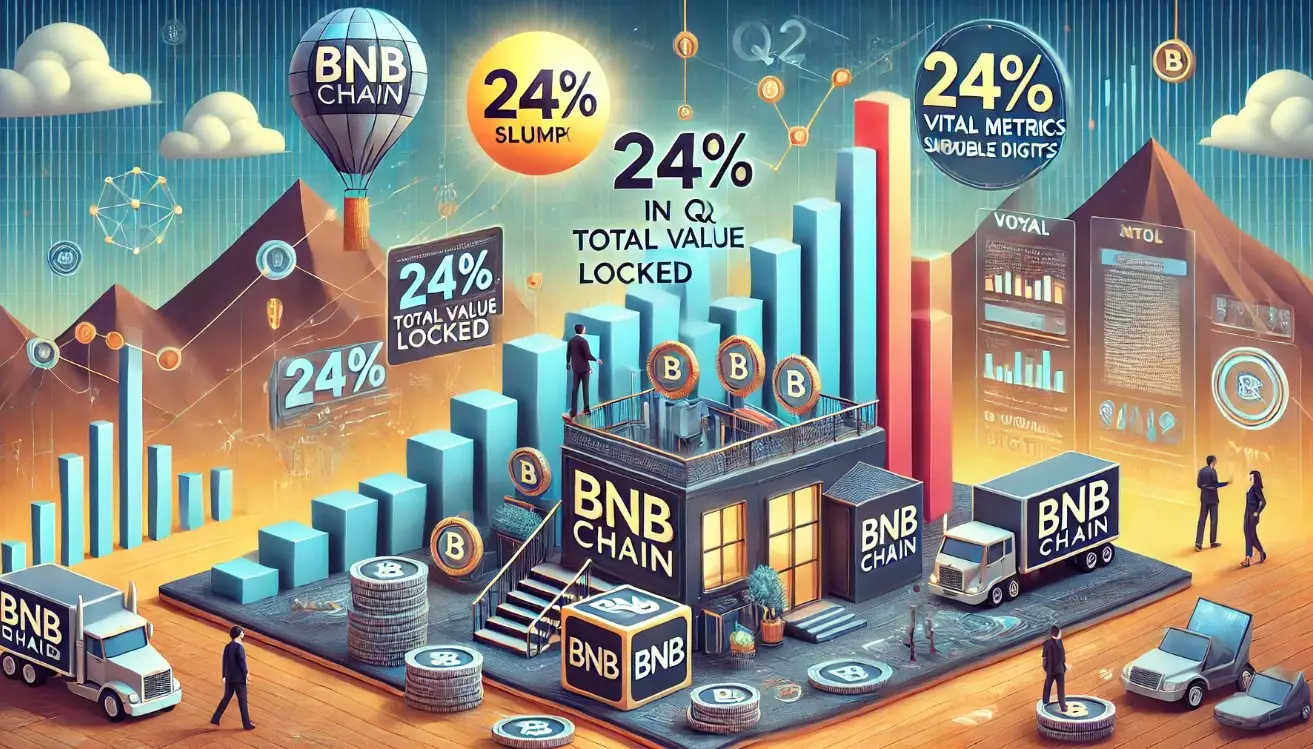As the second quarter of the year unfolded, the Binance Smart Chain (BSC) faced a myriad of challenges alongside glimpses of success. Despite the stagnant performance of the native BNB token, which saw a 5% decline quarter-over-quarter, the network’s key metrics displayed a mix of positive and negative trends. According to a recent report by Messari, the chain’s revenue suffered a significant blow, plummeting 28% QoQ to $48.1 million in Q2. This decline was partly attributed to the decrease in BNB’s price, resulting in a 51% sequential drop in revenue when measured in the network’s native token terms.
One of the notable negative trends observed in the BSC during Q2 was the decline in network activity. Average daily transactions dwindled by 10% QoQ to 3.7 million, while average daily active addresses saw an 18% decrease to 1.1 million. This trend was not exclusive to the BSC, as on-chain activity experienced a dip across most smart contract platforms in the second quarter following a robust Q1 performance.
Despite the overall decline in network metrics, notable shifts in user preferences within the BSC ecosystem were observed in Q2. Decentralized exchange (DEX) Uniswap witnessed a remarkable surge in daily transactions, soaring by 630% QoQ. In contrast, the previously dominant PancakeSwap faced a 46% decrease in daily transactions during the same period. This shift underscores the evolving landscape of decentralized exchanges within the BSC.
On a positive note, there was a notable increase in the total BNB staked, rising by 30% QoQ to 30.4 million BNB. The total dollar value of staked funds also witnessed a 24% surge, reaching $17.7 billion. Despite these gains, the BSC’s decentralized finance (DeFi) ecosystem saw a decline in total value locked (TVL), slipping by 24% QoQ to $5.5 billion. This decrease was primarily driven by a 41% drop in borrowing on the DeFi protocol, Venus Finance, indicating challenges in sustaining locked-in value.
Amidst the challenges faced by the BSC, the network managed to maintain the third-highest decentralized exchange (DEX) trading volume during Q2, recording $66 billion in total volume. This placed it behind Ethereum (ETH) and Solana in terms of trading activity. Despite fluctuations, the BNB token closed the quarter at $567, down from its all-time high of $722 in March, but showed a positive trend by trading at $586 at the time of writing, marking a 2% increase in the last 24 hours.
The Binance Smart Chain’s performance in Q2 reflected a mixed bag of challenges and opportunities. While certain metrics witnessed a decline, such as network activity and revenue, there were positive indicators like increased staking participation and sustained trading volume. Moving forward, addressing the challenges in the DeFi ecosystem and adapting to evolving user preferences will be crucial for the BSC to maintain its position in the competitive landscape of blockchain networks.



















